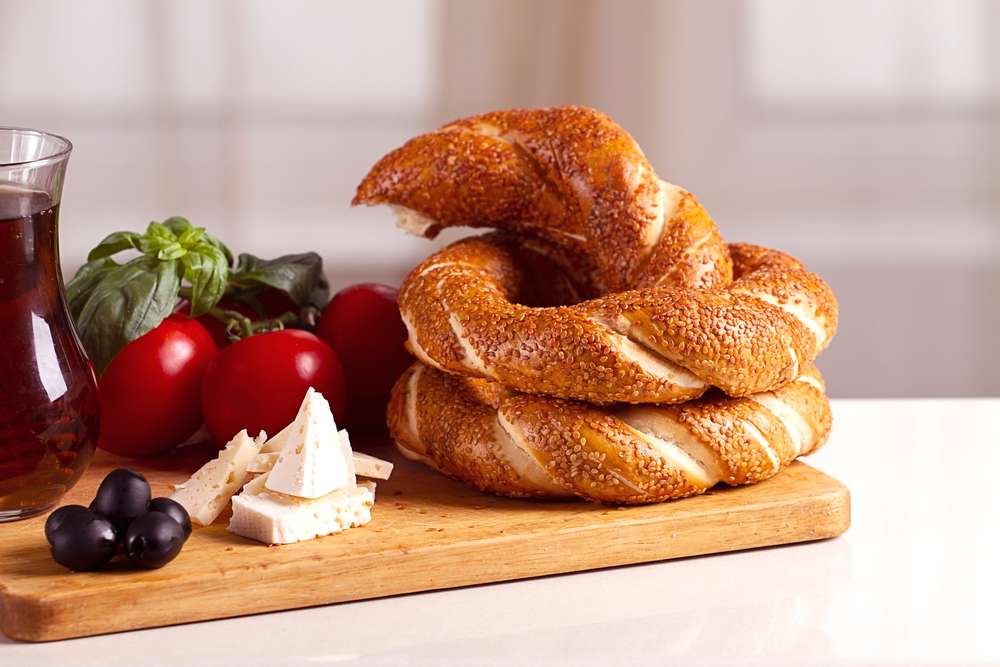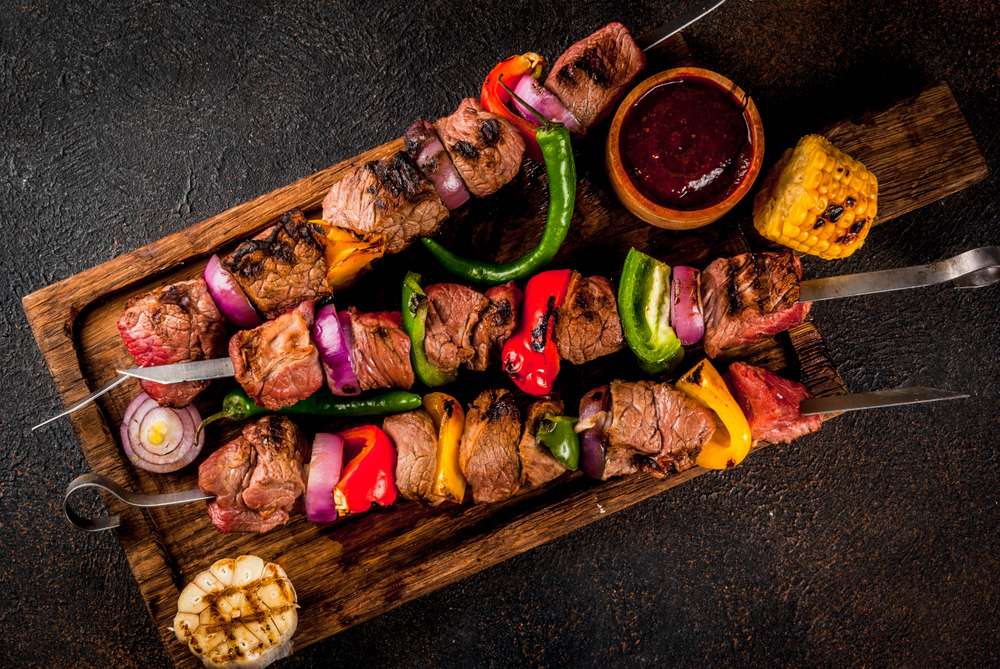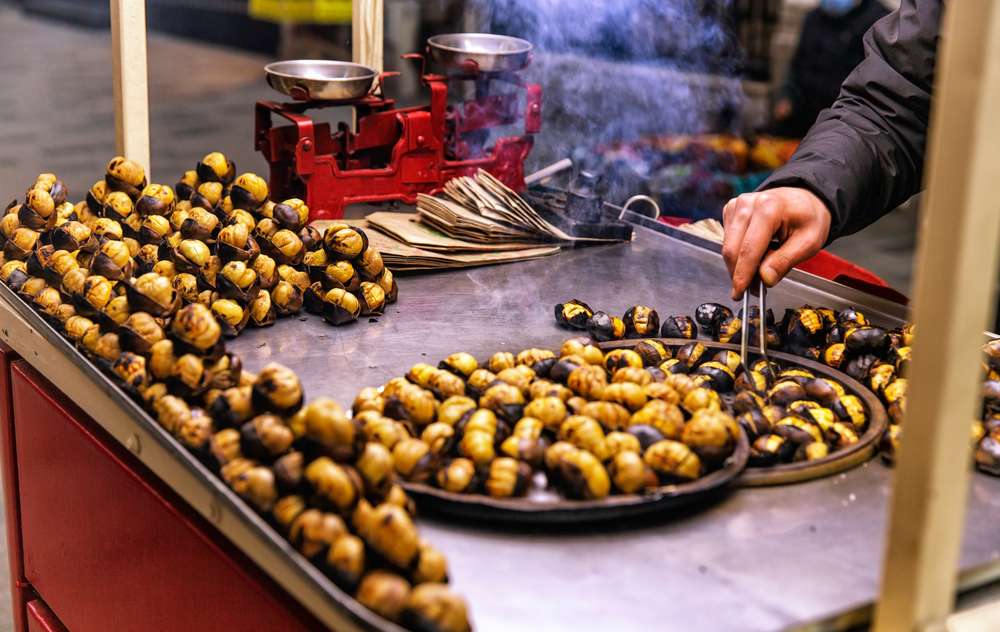Everything you need to know about Turkish Cuisine

Turkish cuisine, with its myriad of flavors and culinary traditions, offers a gastronomical journey like no other. Known for its vibrancy and diversity, Turkish food has something to offer every palate. From succulent meats and hearty soups to sweet pastries and refreshing beverages, Turkish cuisine truly stands out in the world of gastronomy. Let's embark on a culinary voyage and explore the famous Turkish food that makes this cuisine so enticing.

The Tapestry of Turkish Food: An Overview
Turkish cuisine is a melange of flavors, reflecting the rich history and diverse cultural influences that have shaped the country. The cuisine has its roots in the Ottoman Empire, where it was influenced by various civilizations and geographical locations. A bridge between Europe, Asia, and the Islamic world, Turkey has developed a unique culinary culture. Whether it's the renowned meat dishes like kebabs and koftas, the delectable sweet treats like baklava, or the refreshing beverages like Turkish tea and coffee, the Turkish food menu offers an enticing array of dishes.
A Culinary Legacy
The Ottoman Empire left an indelible mark on Turkish cuisine. The imperial kitchen, known for its rich and savory dishes, has greatly influenced the flavors and techniques of Turkish food. The Ottoman chefs were known for their creativity and craftsmanship, creating dishes that were not just delicious, but also visually appealing. These culinary traditions have been passed down through generations and are still cherished today.
A Blend of Cultural Influences
Turkish cuisine is a reflection of the country's geographical location and cultural interactions. It serves as a bridge between the Mediterranean and the Far East, incorporating elements from both these culinary traditions. Additionally, Turkey's Islamic heritage has also influenced its cuisine, with dishes adhering to halal dietary laws.
Seasonality and Freshness
An important characteristic of Turkish food is its emphasis on seasonality and freshness. The dishes are prepared using fresh, locally sourced ingredients, ensuring that the flavors are vibrant and authentic. From fresh fruits and vegetables to high-quality meats and dairy products, the ingredients used in Turkish cuisine are a testament to the country's rich agricultural heritage.
The Art of Turkish Cooking
While the ingredients and flavors of Turkish cuisine are essential, the cooking techniques and presentation are equally important. The preparation of Turkish food involves a variety of methods, from grilling and roasting to stewing and baking. These techniques, combined with the use of fresh ingredients and aromatic spices, result in dishes that are not just delicious, but also visually appealing.
Grilling and Roasting
Grilling and roasting are common cooking methods in Turkish cuisine. Kebabs, for instance, are typically grilled over hot charcoal, giving them a smoky flavor. Similarly, 'Kuzu Tandir', a slow-cooked roast lamb dish, is prepared by roasting the meat until it's tender and flavorful.
Stewing
Stewing is another popular cooking technique in Turkish cuisine. Dishes like 'Kapuska', a cabbage-based stew, and 'Menemen', a dish made with scrambled eggs and sauteed vegetables, are prepared by slow-cooking the ingredients to bring out their flavors.
Baking
Baking is widely used in the preparation of Turkish breads and pastries. 'Lahmacun', a Turkish-style pizza, and 'Borek', a pastry dish, are baked to perfection, resulting in crispy and flaky textures.

Turkish Cuisine: A Melting Pot of Cultures
Turkish cuisine is a melting pot of cultures, drawing influences from various civilizations and regions. It's a cuisine that has evolved over centuries, incorporating elements from the Mediterranean, the Far East, and the Islamic world. This cultural amalgamation is reflected in the diverse range of dishes, flavors, and cooking techniques found in Turkish cuisine.
Mediterranean Influences
The Mediterranean influence on Turkish cuisine is evident in its use of fresh vegetables, olive oil, and seafood. Dishes like 'Dolma', a dish made with stuffed grape leaves, and 'Balik Ekmek', a grilled fish sandwich, showcase the Mediterranean flavors.
Far East Influences
The Far East influence is seen in the use of spices and herbs in Turkish cuisine. 'Köfte', the Turkish version of meatballs, and 'Çiğ Köfte', spicy balls made with bulgur, onion, pepper, and tomato pastes, embody the bold and robust flavors of the Far East.
Islamic Influences
The Islamic influence on Turkish cuisine is reflected in its adherence to halal dietary laws. Most of the meat dishes, including the famous kebabs, are prepared using halal meat.
The Role of Seasonality in Turkish Cuisine
Seasonality plays a crucial role in Turkish cuisine. The dishes are prepared using fresh, locally sourced ingredients, ensuring that the flavors are vibrant and authentic. This emphasis on seasonality not only enhances the taste of the dishes but also promotes sustainable and responsible eating practices.
Embracing the Seasons
Turkish cuisine embraces the changing seasons by incorporating seasonal produce into its dishes. For instance, 'Menemen', a dish made with scrambled eggs, tomatoes, and peppers, is a summer favorite, while 'Salep', a traditional winter drink, is enjoyed during the colder months.
Locally-Sourced Ingredients
The use of locally sourced ingredients is a hallmark of Turkish cuisine. From fresh fruits and vegetables to high-quality meats and dairy products, the ingredients used in Turkish cuisine are a testament to the country's rich agricultural heritage.
Freshness and Quality
Turkish cuisine places a high emphasis on the freshness and quality of ingredients. Whether it's the succulent meats used in kebabs, the fresh vegetables in 'Dolma', or the aromatic spices in 'Çiğ Köfte', Turkish cuisine ensures that the ingredients are fresh, high-quality, and full of flavor.
The Gastronomic Delights of Turkish Cuisine
When exploring Turkish cuisine, one can expect a culinary adventure filled with enticing flavors and aromatic dishes. Here are some of the most famous Turkish food items that you must try.
1. Meat and Poultry Dishes
Kebabs
Kebabs are synonymous with Turkish cuisine. These skewered and grilled meat dishes are a staple in Turkish food culture. There are various types of kebabs, each with its unique preparation method and flavor profile. For instance, the famous 'Şiş Kebap' is made from marinated skewered lamb or beef cubes cooked on hot charcoal. The 'Döner', another popular variant, is a kebab sandwich prepared with slow-cooked chicken, lamb, or beef. 'Köfte', the Turkish version of meatballs, and 'Iskender Kebab', made with strips of lamb, are other must-try dishes for meat lovers.
Poultry Dishes
Poultry, particularly chicken, plays a significant role in Turkish cuisine. 'Tavuk Şiş' (Turkish Chicken Kebab) and 'Kazan Dibi' (Turkish Chicken Breast Pudding) are some famous poultry dishes. These dishes are characterized by their succulent meat and aromatic spices, offering a delightful gastronomic experience.
2. Seafood
With its extensive coastline, it's no surprise that seafood is an integral part of Turkish cuisine. 'Balik Ekmek', a grilled fish sandwich, is a popular street food in Turkey. Other seafood dishes like 'Çilbir', a traditional Turkish dish with eggs and fish, offer a unique taste of the country's coastal cuisine.
2. Vegetable Dishes
Turkish cuisine also caters to vegetarians with a variety of vegetable-based dishes. 'Dolma', a dish made with stuffed grape leaves, and 'Çiğ Köfte', spicy balls made with bulgur, onion, and tomato pastes, are some vegetarian delicacies. 'Kapuska', a hearty cabbage-based stew, and 'Mucver', a Turkish version of vegetable fritters, are other vegetarian delights to try.
4. Soups and Stews
Soups and stews form an essential part of a traditional Turkish meal. 'Corba', a simple soup dish based on red or orange lentils, is a classic Turkish comfort food. 'Menemen', a Turkish egg delicacy, is another hearty dish to try. These dishes, with their warm and comforting flavors, are a testament to Turkey's rich culinary tradition.
5. Bread and Pastries
Breads and pastries hold a special place in Turkish cuisine. 'Lahmacun', a Turkish-style pizza with a topping of minced meat, salad, and lemon juice, is a must-try. 'Pide', a Turkish patty, and 'Borek', spinach or meat puffs, are other delectable bread-based dishes. 'Simit', a Turkish pretzel, is a popular snack that's enjoyed throughout the country.
6. Sweet Delights
Turkish cuisine is renowned for its sweet treats. 'Baklava', a rich and syrupy pastry dessert made of layers of filo filled with chopped nuts, is a Turkish classic. 'Lokum', also known as Turkish Delight, is a firm jelly-like cube that comes in different flavors like rosewater, mastic, or lemon. 'Helva', a sweet dish made from tahini and sugar, and 'Mozzaik', a delicious chocolate cake, are other Turkish desserts that will satiate your sweet tooth.
7. Beverages
No culinary journey is complete without tasting the local beverages, and Turkey is no exception. Turkish tea, with its robust flavor and comforting warmth, is a must-try. Turkish coffee, known for its strong aroma and unique preparation method, offers a distinctive coffee experience. 'Salep', a traditional winter drink made from the tubers of orchids, is another beverage to try.

The Art of Meze in Turkish Cuisine
'Meze' is an integral part of Turkish cuisine. It refers to a selection of small dishes served as appetizers before the main course. Meze can include a variety of dishes, from dips and spreads to stuffed vegetables and seafood. The art of meze is all about sharing and enjoying a variety of flavors and textures. A typical meze platter can include 'Humus', a creamy dip made with chickpeas and tahini, 'Baba Ganoush', a smoky eggplant dip, 'Dolma', stuffed grape leaves, and 'Tzatziki', a refreshing yogurt and cucumber dip.
Turkish Desserts: A Sweet Ending
No culinary journey through Turkish cuisine would be complete without tasting its desserts. Turkish desserts are known for their richness and sweetness, offering a perfect ending to a meal. 'Baklava', a syrupy pastry made with layers of filo and filled with chopped nuts, is a classic Turkish dessert. 'Lokum', also known as Turkish Delight, is a sweet, jelly-like treat that comes in a variety of flavors. Other popular Turkish desserts include 'Helva', a sweet dish made from tahini and sugar, and 'Kazan Dibi', a chicken breast pudding.
Turkish Tea and Coffee: The Perfect Companions
Turkish tea and coffee are the perfect companions to any meal. Turkish tea, with its robust flavor and comforting warmth, is a must-try. Turkish coffee, known for its strong aroma and unique preparation method, offers a distinctive coffee experience. These beverages not only complement the flavors of Turkish cuisine but also provide a glimpse into the country's culture and traditions.
The Street Food Culture of Turkey
The street food culture of Turkey offers an exciting culinary adventure. From 'Döner', a kebab sandwich, to 'Lahmacun', a Turkish-style pizza, the streets of Turkey are filled with delicious and affordable food options. The street food in Turkey is not just about convenience, but also about experiencing the vibrant flavors and culinary traditions of the country.
Turkish Cuisine: A Culinary Journey
Exploring Turkish cuisine is a culinary journey like no other. With its rich flavors, diverse ingredients, and unique cooking techniques, Turkish cuisine offers a gastronomical experience that is both delightful and unforgettable. Whether it's the succulent meats, the hearty soups, the sweet pastries, or the refreshing beverages, Turkish cuisine is sure to leave you asking for more.
The Influence of Turkish Cuisine
Turkish cuisine has influenced many other cuisines around the world. From the kebabs of the Middle East to the stuffed grape leaves of Greece, the impact of Turkish cuisine can be seen in various dishes worldwide. The rich flavors, diverse ingredients, and unique cooking techniques of Turkish food have made it one of the most popular cuisines globally.
Conclusion
Turkish cuisine is a gastronomic delight that offers an array of flavors and dishes to suit every palate. From meats and poultry to seafood, vegetables, and desserts, Turkish food has something for everyone. The use of fresh, locally sourced ingredients, combined with traditional cooking techniques, makes Turkish cuisine a culinary adventure worth exploring. So, whether you're a food enthusiast or a culinary explorer, Turkish cuisine is sure to tantalize your taste buds and leave you craving more. Experience the richness of Turkish food and embark on a gastronomic journey that you'll cherish forever.
Book with Turkey Tour Trip your upcoming Turkey Trip!
Related Tours

7 Days / 6 Nights
This trip promises not just a journey but an odyssey through the ages, where every moment is a brushstroke on the canvas of your memories.














































